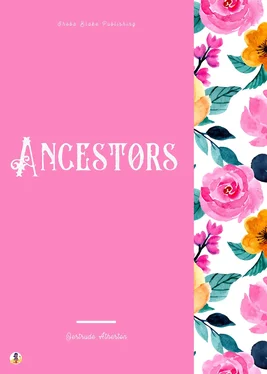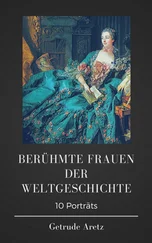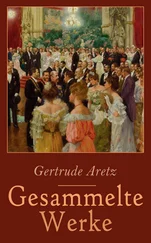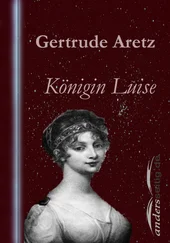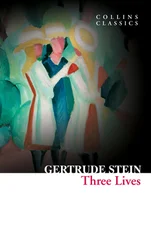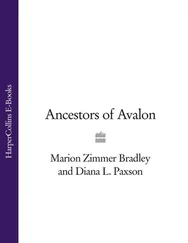Gertrude Atherton - Ancestors
Здесь есть возможность читать онлайн «Gertrude Atherton - Ancestors» — ознакомительный отрывок электронной книги совершенно бесплатно, а после прочтения отрывка купить полную версию. В некоторых случаях можно слушать аудио, скачать через торрент в формате fb2 и присутствует краткое содержание. Жанр: unrecognised, на английском языке. Описание произведения, (предисловие) а так же отзывы посетителей доступны на портале библиотеки ЛибКат.
- Название:Ancestors
- Автор:
- Жанр:
- Год:неизвестен
- ISBN:нет данных
- Рейтинг книги:3 / 5. Голосов: 1
-
Избранное:Добавить в избранное
- Отзывы:
-
Ваша оценка:
- 60
- 1
- 2
- 3
- 4
- 5
Ancestors: краткое содержание, описание и аннотация
Предлагаем к чтению аннотацию, описание, краткое содержание или предисловие (зависит от того, что написал сам автор книги «Ancestors»). Если вы не нашли необходимую информацию о книге — напишите в комментариях, мы постараемся отыскать её.
Ancestors — читать онлайн ознакомительный отрывок
Ниже представлен текст книги, разбитый по страницам. Система сохранения места последней прочитанной страницы, позволяет с удобством читать онлайн бесплатно книгу «Ancestors», без необходимости каждый раз заново искать на чём Вы остановились. Поставьте закладку, и сможете в любой момент перейти на страницу, на которой закончили чтение.
Интервал:
Закладка:
“I see that you have no more sleep in you than I have,” he said. “Let us make a night of it.”
It had rained all day and he was suddenly alive to a sense of physical discomfort. He rang and ordered a servant to make a fire and bring the tea-service.
“How did you know I was here?” he asked Isabel, when they were alone again.
“I felt that you were, but I went first to your room and tapped. I was quite capable of waking you up. Thank heaven I summoned the courage to come down. This is delightful.”
The fire was crackling in the grate, the water boiling in the big silver kettle. Isabel made his tea almost black, but diluted her own, lest she should be left alone before she too was ready for sleep.
“You have had a beastly time these last days,” he said, for he was genuinely hospitable. “I am sorry you did not happen to come a month earlier. Have you seen anything of Hexam? He was going on to Arcot.”
“He rode over, or walked over, every day. We should have fallen a prey to melancholy without him, although you may believe me when I assure you that we thought more of you than we did of ourselves. I am your own blood-relation, so I have a right to feel dreadfully sympathetic—may I have a cigarette?”
“What a brick you are to smoke! I don’t mind being sympathized with for a change. I have had to do so much sympathizing with others in the last week that I have not had time to pity myself. Even my mother went to pieces, for she was fond of Zeal, poor old chap, and her conscience scorched her because she was always rather nasty to my grandfather—she likes and dislikes tremendously, you know; although to most people she is merely indifferent. But when she dislikes—” He blew the ashes from the tip of his cigarette with a slight whistling sound.
Flora Thangue had extracted all the particulars of the death and suicide from Lady Victoria—who knew nothing, however, of the tragic cause of both—and imparted them to Isabel, whose mind, in consequence, was free of morbid curiosity. She had also read the newspapers. The speculations and veiled hints of the sensational sheets had not interested her, but she had pondered deeply over leaders in the more dignified organs, which had abounded in comment upon the changed conditions in the meteoric career of the young man who was no longer Elton Gwynne, but a peer of the realm.
“Do you mind it so awfully much?” she asked, after a short silence during which they had both smoked absently and gazed at the fire.
“What?” Gwynne turned the cold surprise of his eyes upon her. “Losing two of the four people I cared most for on earth?”
“Of course not. Being suddenly made a peer and having to begin all over. You never will be called Elton Gwynne again, and you will have as much trouble educating the public up to your new name as if you were emerging from obscurity for the first time.”
The words, brutally direct, rolled away the last clouds of his lethargy. He vividly realized that he had been skulking before the closed shutters of his understanding, accepting the new conditions with but the dulled surface of his brain.
Now his naked soul stared at her out of his white face and tortured eyes, and she looked away. She had not believed that he could be racked with feeling of any sort, and it was as if she heard him cry: “Oh, God! Oh, God!” although his lips were silent.
But she did not change the subject.
“I suppose you haven’t seen the newspapers,” she said. “I cut out all the editorials and paragraphs I thought would interest you. One of the big dailies, I forget which, said that the interruption of your career was a greater political tragedy than Parnell’s or Lord Randolph Churchill’s.”
“Do they say that?” asked Gwynne, eagerly. “Well, God knows, it is a tragedy for me.”
“Don’t you like being a peer the least little bit? I am too feminine, possibly too American, not to see a certain picturesqueness in a title, especially in such a pretty one as yours; and there is no doubt that you are a more imposing figure in the eyes of the world to-day than you were a week ago. Are you really indifferent to that side of it?”
“Am I? One does such a lot of self-posing and self-imposition. There are few things in this world that gratify a man’s vanity more than being a peer of Great Britain, and, no doubt, had I happened to be born without what you might call a fighting ambition, and certain abilities, I should—barring natural grief—feel that I was one of the favorites of destiny—that is to say if I had a commensurate income. The fact that I must let the Abbey and Capheaton, and after portioning off all the unmarried women of the family, shall have barely enough left to keep up my flat in Charles Street, may have something to do with my absence of enthusiasm. But—yes—I am sure of myself!” he burst out. “I am the most miserable man on earth to-night, and the reason is not that I have lost two good friends, but because my career is ruined, broken off in the middle.”
“You could become a militant Liberal peer.”
“Paradoxes don’t happen to appeal to me. And the only chance for a genuine fighter is the House of Commons. Besides, it is impossible for a man to be a peer and remain a true Liberal. Power, and inherited influence, and exalted social position have a deadly insinuation. I don’t believe any man is strong enough to withstand them. There is never an hour that a peer is not reminded of his difference from the mass of humanity; and human nature is too weak to resist complacency in the end—long before the end. And complacency is the premature old age of the brain and character. If this tragedy had not occurred, even if my grandfather had lived on for fifteen years more, as there was every reason to believe he would, I might have gone on that much longer before discovering weak points in my character. Now God knows what I shall develop.”
“Have you made any plans?”
“Plans? I hadn’t faced the situation until you spoke.”
“You have weak spots like other people, of course. You would be a horrid prig if you hadn’t. But you surely must know if your Liberalism is sincere, ingrained. There is no question that you are a hopeless aristocrat in essentials. But so have been certain of America’s greatest patriots—Washington and Hamilton, for instance. I do not see that it matters. One can hold to what seems to me the first principles of advanced civilization—that hereditary monarchy is an insult to self-respecting and enlightened men—without wishing to associate with those that offend grammar and good taste. Education, intellect, breeding, would create an aristocracy among anarchists on a desert island—supposing any possessed them; and in time it would become as intolerant of liberties as if it harked back to the battle of Hastings. There is no plant that grows so rapidly in the human garden as self-superiority, and it is ridiculous only when watered by nothing more excusable than the arbitrary social conditions that exist in the United States. I don’t see that the qualities you have inherited should interfere with your ability to see the justice and rationality of self-government.”
“They do not!” She seemed to beat his thoughts into their old coherent and logical forms. “Whatever may have been the various motives that impelled me into the Liberal party in the beginning, there is no question that I have become even more extreme and single-minded than I have let the world know. Perhaps it is my American blood, although I never thought of that before. At all events, had the time been ripe I should have devoted all the gift for leadership I now possess, and all the power I could build up, to overturning monarchy in this country and establishing a republic. There! I never confessed as much to a living soul, but I think you have bewitched me, for I never have been less—or more—myself!”
Читать дальшеИнтервал:
Закладка:
Похожие книги на «Ancestors»
Представляем Вашему вниманию похожие книги на «Ancestors» списком для выбора. Мы отобрали схожую по названию и смыслу литературу в надежде предоставить читателям больше вариантов отыскать новые, интересные, ещё непрочитанные произведения.
Обсуждение, отзывы о книге «Ancestors» и просто собственные мнения читателей. Оставьте ваши комментарии, напишите, что Вы думаете о произведении, его смысле или главных героях. Укажите что конкретно понравилось, а что нет, и почему Вы так считаете.
